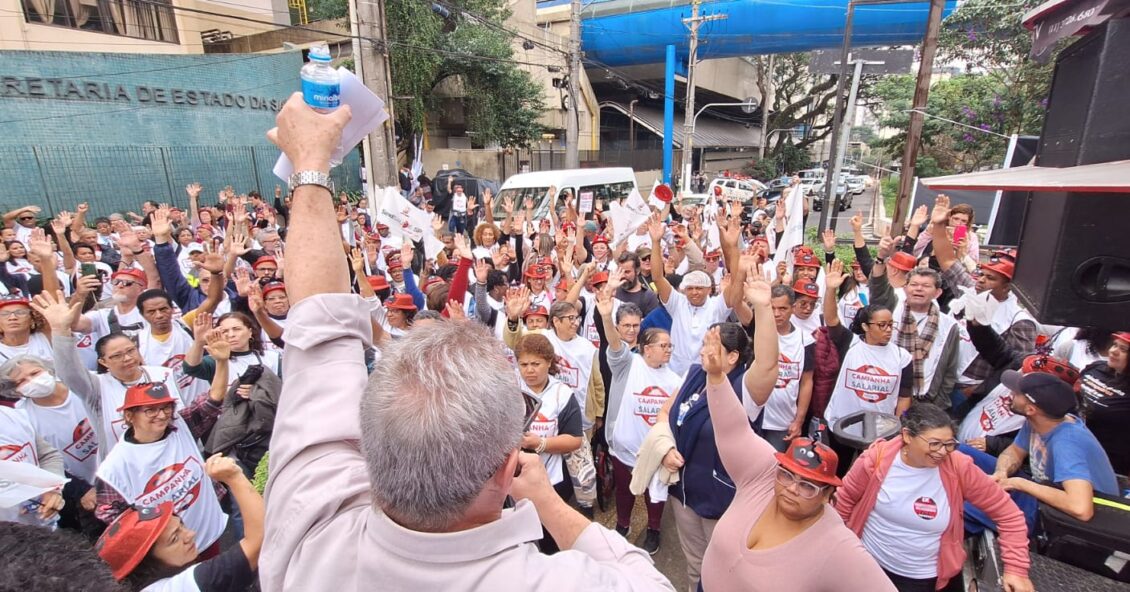UNI Global Union and the French Forum for Responsible Investment (FIR) held a briefing to discuss shared solutions to deep-seated problems in long-term care, many exacerbated by the pandemic. Speakers at the 1 October event—including workers and academics, as well as asset owner Harmonie Mutuelle and asset manager Sycomore Asset Management—agreed that stakeholders must act together to make the industry more sustainable by improving working conditions and care quality.
“Through this event, we’re pleased to inform our members of these important issues in the nursing home sector and share the insightful perspectives of workers, trade unions and other expert stakeholders” Marie Marchais, Manager of the Engagement Platform at the FIR.
Several speakers raised the issue of staffing. The aging global population will add additional strain to an already frayed, understaffed industry. Thomas Rapp, a specialist in the economics of health and aging at the University of Paris, noted that recruitment and retainment of long-term care workers is a priority throughout the OECD, and while some countries are doing better than others, there is a consistent need to raise standards.
“Working conditions and wages are the main problems for staffing,” Rapp said. “Because the work is incredibly difficult both mentally and physically and the caregivers are incredibly stretched, the quality of care is not optimal. Even in the countries doing the most to recruit and retain workers, there is still a lot to do.”
Rapp noted that the impact of this understaffing can include an increased use of powerful drugs to manage common patient issues and an incredible wear and tear on workers’ bodies. In fact, joining the LTC workforce has the same impact on workers’ health as nine months of aging.
UNI’s Mark Bergfeld made clear that the LTC sector does not have to be this way. He said that collective bargaining and unions can prevent burnout, improve workplace safety and keep workers in the sector longer. They can also raise wages throughout the industry.
However, many companies have fought efforts to unionize. Workers who spoke during the event told their personal stories of overcoming employer resistance to unions, and why working through the pandemic strengthened their commitment to collective bargaining.“Without a stable workforce,” noted an employee of a multinational, “my company won’t be able to grow in the future or improve the quality of care. A stable workforce requires good, stable jobs.” One participant noted that too many LTC employers appear to be taking the opposite approach. Typhaine de Borne, Manager of SRI analysis at Harmonie Mutuelle stated: “Even before the pandemic, staffing levels and cost-cutting raised concerns for us as investors, given our focus on health and social issues as an actor in the health sector, and the financial risks the lack of confidence in nursing homes delivering quality care creates for the sector as a whole.Working together with other investors with the support of UNI Global Union increases our effectiveness in achieving these aims.”
Investors are organizing coalitions among themselves, as well as with other stakeholders such as unions and patient advocates to raise the bar in the sector. Along with UNI, more than 100 investors recently launched an initiative that calls for a renewed focus on health and improving standards through adequate staffing levels, expanded collective bargaining and union representation, improved workplace safety, liveable wages, and enhanced quality of care.
Sara Carvalho de Oliveira, SRI Analyst at Sycomore Asset Management: “We see as very important that this initiative is multi-stakeholder so we have direct knowledge of what is happening in the field, and that we also work together with international investors bringing different perspectives. Our first goal in this initiative is to raise awareness with other investors through events like this. We also use tools such as key indicators to have more concrete dialogue with companies, and ultimately our goal is to use these tools and this collaboration to have greater leverage to encourage companies to improve through long-term dialogue.”


